riding far blog
Our goal is to raise riders' awareness of the importance of mental and emotional skills in equestrian sport. We help equestrians achieve their personal riding goals.
WE SUPPORT, CHALLENGE AND INSPIRE EQUESTRIANS
We hope you will enjoy our insights in the forms of Casual Conversations, videos and articles aimed at helping the equestrian transform their relationships with their horses. We are passionate about sharing our knowledge, tips, tricks, and experiences.
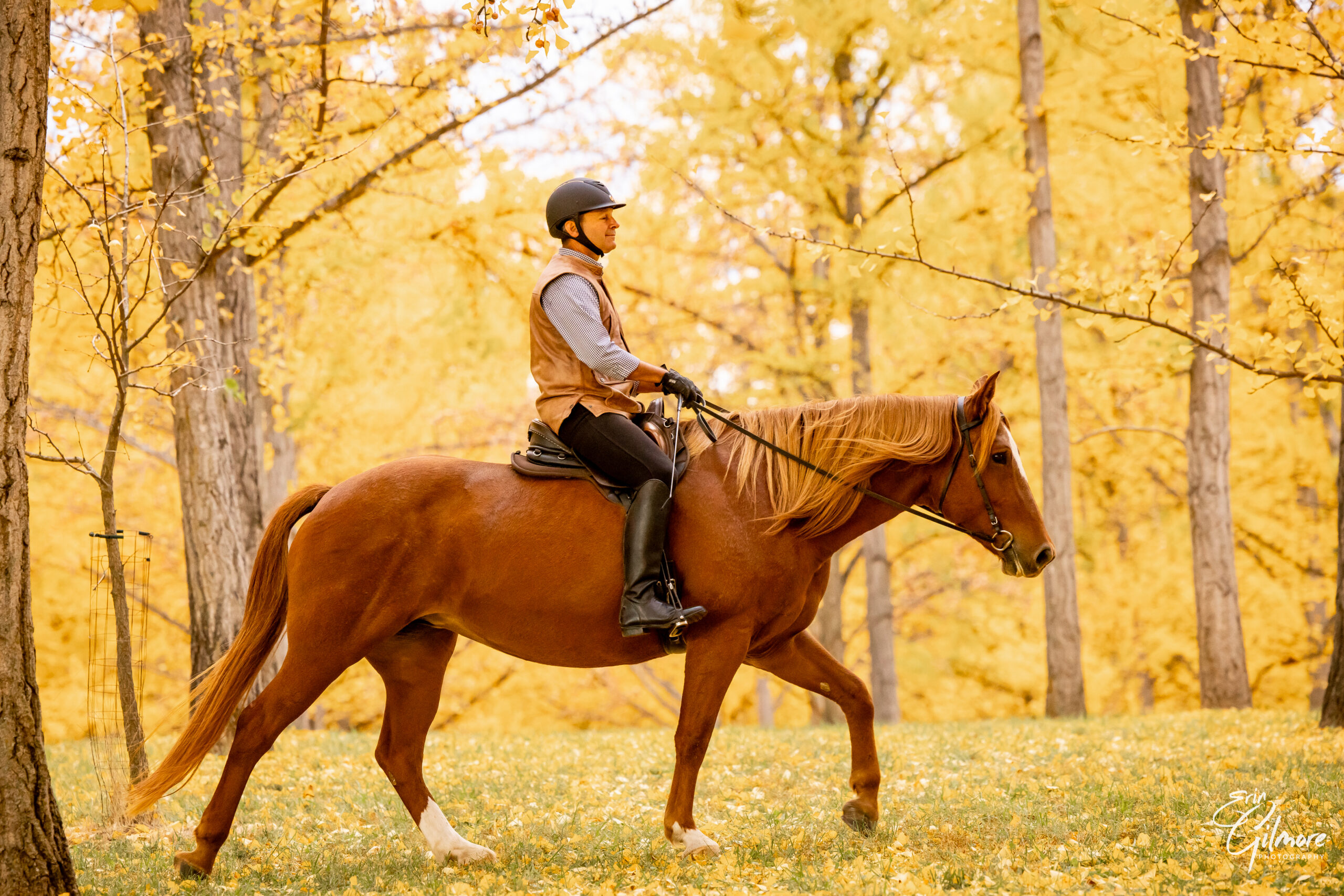
November 22, 2025
Psych Saturday: Time
I remember being eleven or twelve, counting down the days to summer vacation. Those eight to ten weeks felt like a joyful eternity, time to ride, fish, play, and be with friends and family.
I remember my early thirties, just after finishing grad school, when life stretched out like a boundless horizon. Time felt abundant then. There was room to dream, to build, to become whoever I wanted to be. I never questioned whether there would be enough time. It felt infinite.
And then I woke up this morning, on the first day of my 64th year on this great blue marble hurtling once again around the sun, and something felt different. I am acutely aware now that my time is limited. Limited time to learn and grow. Limited time to connect, share, and teach. Limited time to play and celebrate with friends and loved ones.
I am sure the cadence of time has not changed. The clock has not sped up. And yet, somehow, it feels different. It slips by more quickly. There seems to be less of it.
I could focus on the downside of that realization, on the shrinking runway. I could despair about how little time I may have left or judge myself for what I did not accomplish in the first 63 years. I could linger in regret over time wasted or piddled away on nonsense.
But this morning, I am drawn instead to gratitude.
Gratitude for the life I have lived, the work I have done, and the relationships that anchor me. Gratitude for each moment, each week, day, hour, and minute. Holding every sliver of time as something precious.
And I find myself wondering: What would it be like to live each day this way, to treat every moment as a gift and not a guarantee?
Will you join me? ~Paul
#RidingFar #PsychSaturday #MindfulAging #TimeAndMeaning #GratitudePractice #LifeReflections #GrowingOlder #MindfulnessJourney #MentalHealthMatters #WisdomInAging #CherishTheMoment #PresenceOverPerfection #IntentionalLiving #GratefulHeart #LifeOnPurpose
Read More
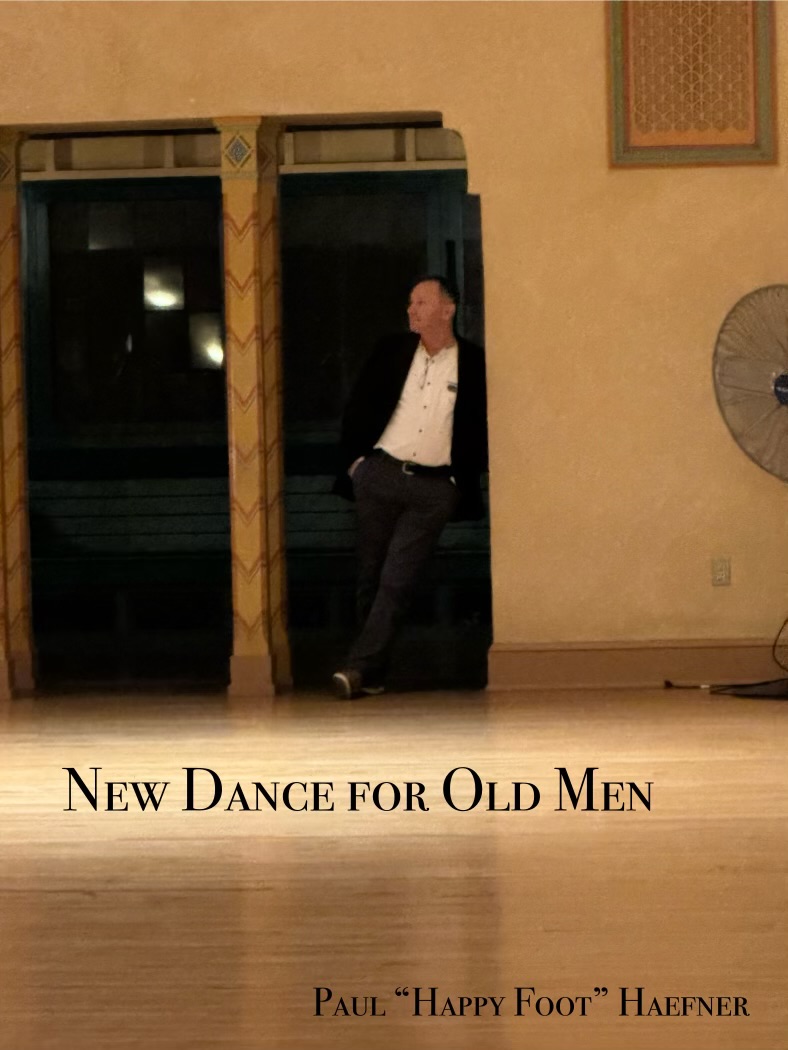
This weekend I’m heading to the Stardust Slow Balboa Weekend, a full immersion into slow balboa with classes, social dances, and even a competition.
“What is Slow Balboa?” you might ask.
Excellent question. I’ve been asking it too.
The funny thing is that everyone I ask has a slightly different answer. Here is what I do know: it is a partner dance, it is related to swing, and I am going to spend the entire weekend discovering what it feels like from the inside out.
We talk a lot about beginner’s mind, the idea of approaching a new skill with curiosity and wonder. It makes sense that we focus on the mind. If you are anything like me, it is your thoughts that get loud when you are learning something new. My inner critic is particularly enthusiastic. It loves those moments when I stumble or fall short and is quick to offer commentary I never asked for.
On good days, I can wrangle those thoughts by sheer force of will and redirect myself back to learning. But recently I have realized something important. As much as my thinking matters, it is my heart that fuels me.
A beginner’s heart, full of joy, eagerness, excitement, and possibility, gives us the energy to learn, to seek, and to keep going. It quiets the inner critic far better than logic ever could.
So this weekend I will be leaning into my own beginner’s heart as I explore Slow Balboa, openly, eagerly, a little awkwardly, and with the same curiosity I bring to the barn.
If you are learning something new, whether in a lesson, a clinic, or a quiet moment of practice on your own, I hope you find your beginner’s heart too. It is a wonderful companion on the journey. ~Paul
#RidingFar #PsychSaturday #BeginnersHeart #BeginnersMind #LearningJourney #SlowBalboa #SwingDanceCommunity #CuriosityOverFear #GrowthMindset #JoyInLearning #TrySomethingNew #AdultLearners #PracticeWithHeart #EmbraceTheJourney #InnerCritic #KeepLearning
November 15, 2025
Read more

November 8, 2025
Have you ever read about something that grabs your attention, and suddenly everything you see, every interaction you have, runs through that new filter? That’s been my life for the past two weeks as I prepare for our free webinar later this month on Boundaries in the Barn.
One thing that makes me chuckle is realizing that my obsession with boundaries, in every interaction I have with both horses and humans, might actually be a boundary concern for me. After all, I’m the one fixated on it. Seeing everything through one lens could easily affect my ability to recognize others as separate individuals with their own needs, perspectives, and agendas. My agenda isn’t theirs.
That said, diving into a topic and challenging yourself to explore something new is a wonderful tool for growth. There’s real value in letting your curiosity take over, even to the point of obsession, and allowing it to change how you see the world.
I remember as a young man becoming fascinated by ragtime guitar. Stefan Grossman, a ragtime guitar guru, had published a book of tunes adapted for guitar, and I dove in headfirst. Few things have ever captured my attention with such intensity. Practice became a joy. And before long, I noticed that everything I played was filtered through that ragtime rhythm.
The obsession didn’t last forever, but the effect did. My overall playing improved, and even years later, I’d catch my fingers slipping into a syncopation or picking pattern from The Salty Dog Rag or Hard Hearted Hannah.
So my encouragement for you today is this: dive deep. Learn something new. Try on a new pair of “glasses” and look at the world through that lens for a while. Then pay attention to how you grow and change as that experience becomes part of you. My guess, as always, is that our horses will appreciate it. ~Paul
PC – Erin Gilmore Photography Glasses by AI
#RidingFar #PsychSaturday #BoundariesInTheBarn #CuriosityAndGrowth #EquineConnection #LearnSomethingNew #MindfulHorsemanship #PersonalGrowth #HorsePsychology
Read More
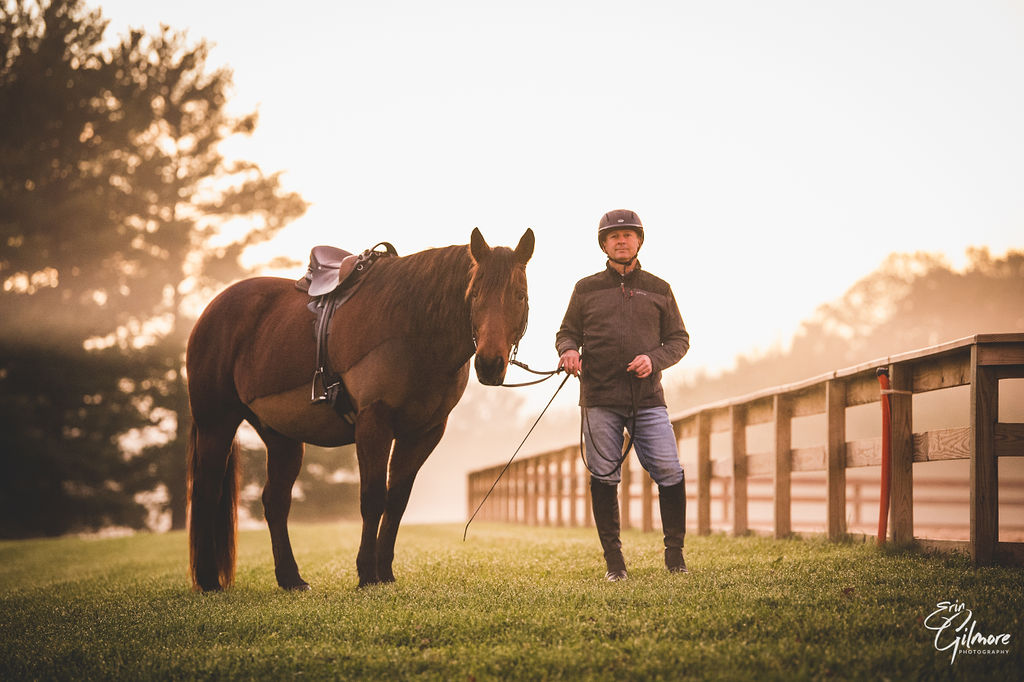
In preparation for our next webinar, I started reading a new book on boundaries. There are hundreds of books on the subject, and I wasn’t sure where to begin or what to look for in my next read. What I did know was that I didn’t want another book offering advice on how and when to say “no.” It’s not that learning to say no isn’t important, but setting limits like that naturally grows from having healthy boundaries. I wanted to understand how to nurture those boundaries, not just teach people how to act as if they already had them.
As I scanned through titles, one stood out because of its subtitle: “Where You End and I Begin.” It captured the idea of boundaries in a way that, for me, inspired both curiosity and wonder. Physically, it is easy to grasp the boundary between you and me. Yet in almost every other way, whether emotionally, psychologically, spiritually, or energetically, it becomes profoundly difficult to define.
One way we recognize a boundary is through conflict. Let’s call these the “no’s” in a relationship. These inevitable conflicts arise from the simple fact of difference: different ideas, different interests, different strategies to meet our needs.
In the world of horses, there has been growing attention to seeing and respecting the “no.” Noticing these moments of conflict is essential, but is simply honoring the “no” enough to develop healthy boundaries? To me, it seems like the easy way out to simply withdraw, separate, or put up a wall whenever we recognize a “no.”
Boundaries require both a you and a me. They are dynamic and come alive in interaction. All the rich qualities of relationship, such as respect, honor, trust, dignity, love, care, and concern, emerge from the search for the “yes,” not from merely respecting the “no.”
There are parts of the horse world that are focused entirely on the “no” these days. It is an understandable correction for all the times when the boundary between human and horse has been bulldozed by human needs and desires. But we must be careful not to swing too far in the other direction and lose the beauty and magic that exist in the boundary itself.
Saying no, or stopping when we see a no, is easy. Finding a yes is what truly counts, especially if we want to live in healthy relationship with one another and with our horses. Let us seek that energetic, emotional, psychological, spiritual, and dynamic interplay of self and other as we discover a true yes that respects and honors all the beings with whom we share this world.
How have you and your horses found a mutual yes?
~ Paul
#RidingFar #PsychSaturday #Horsemanship #EquineConnection #RelationalHorsemanship #ConnectionOverControl #HorseHumanConnection #TrustAndRespect #MindfulHorsemanship #EquineWisdom #HorsesAsTeachers #AuthenticConnection #BoundariesWithHorses #FindingTheYes
November 1, 2025
Read more
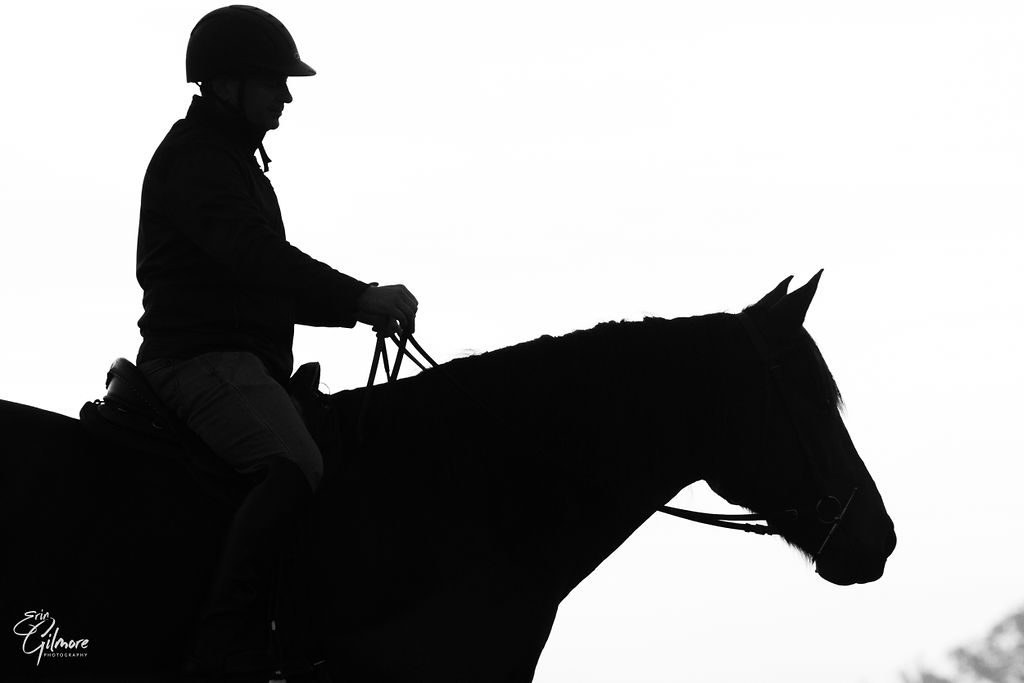
October 25, 2025
I love words. The way they capture subtlety in meaning. The way they nuance understanding, much like how the golden light of morning creates magic in a photograph.
As amazing as words are, their greatest power and influence shine when they join together, bringing meaning to life through the complexities and richness of language.
Language, for all its beauty, is often predictable. I’m no linguist, and in fact, you might even call me language-poor, but I do know that every language has its rules and conventions. Each has its own rhythm, its own routine. That predictability can make it dull and lifeless. Yet somehow, under the same structure, it can also be alive, fascinating, and inviting.
So what makes the difference? What are the magic ingredients that lift the ordinary into something inspired, transforming a routine from lifeless pattern into living expression?
In music, we talk about rhythm, the pattern of sounds and silences, the heartbeat of timing and duration. We also talk about cadence, the flow and feel of that rhythm, its rate of movement, and the rise and fall that signal beginnings and endings.
I think about my horse, Revel. People have called him lazy, or as one person put it, “profoundly efficient.” I used to tell everyone he hated ring work, that he would shut down with the usual routines. I believed that story, until recently.
What I’ve come to realize is that routine isn’t the problem. Routine is simply a framework, one that can sink into drudgery or rise to the level of inspiration. The difference might just be in how we play with rhythm and cadence.
Revel and I are exploring that space between repetition and revelation. We’ll let you know what we discover.
~ Paul
#PsychSaturday #RidingFar #MindfulHorsemanship #RhythmAndCadence #HorseWisdom #EquestrianLife #RidingWithHeart #LearningFromHorses #EquineInsight #InspiredRiding #HorseConnection #RevelAndPaul #MindfulRider #HorseJourney
Read More
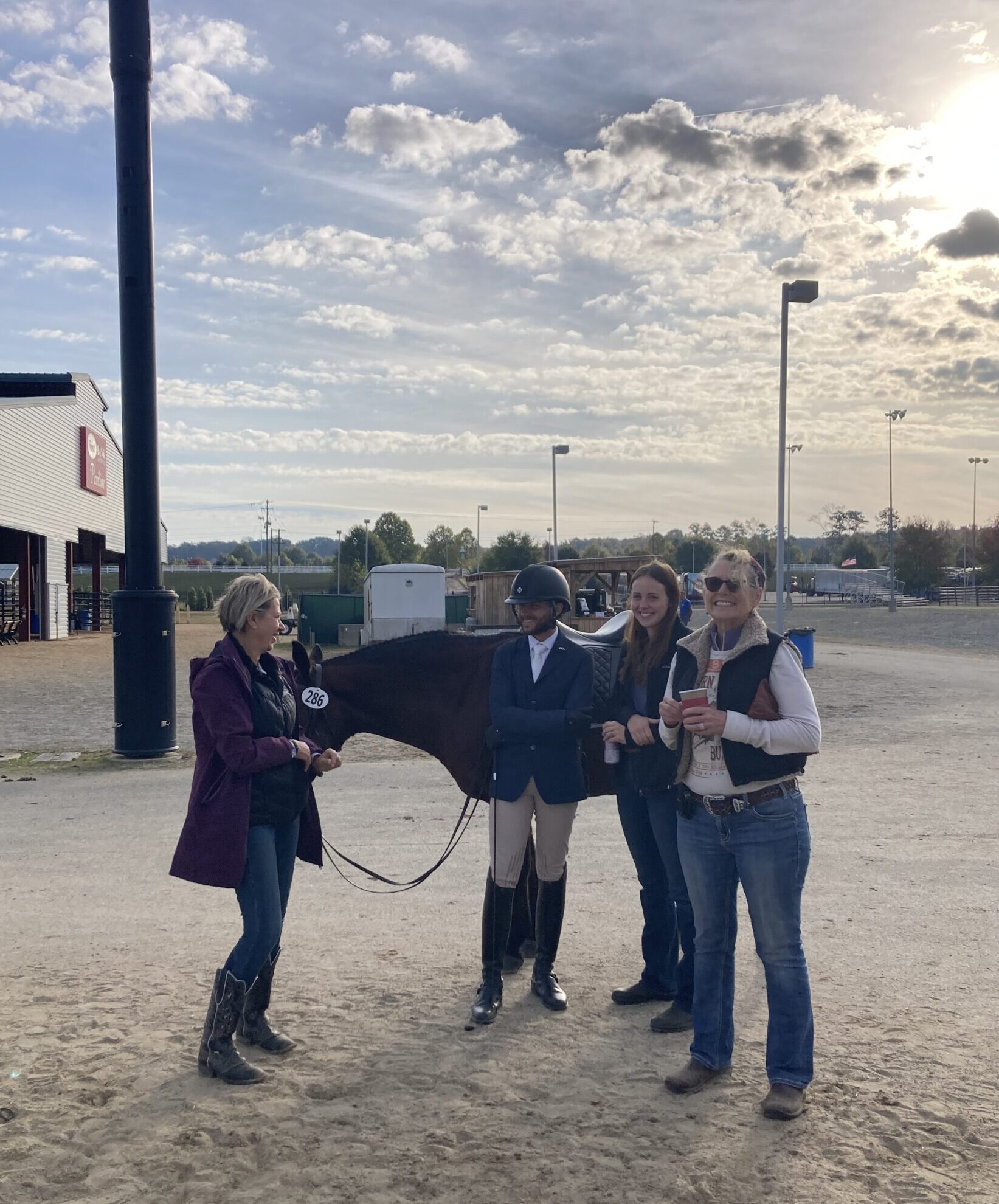
Some things are small. Some things are so small that it’s hard to believe they could make a meaningful difference. Would you notice if something moved 1/1000th of an inch? 1/100th? Would you see if I was 1/1000th of a second faster or slower than you? And even if we did notice, would it really matter?
Justin and Kola were competing in the USA Working Equitation Regional Finals this weekend. The first day, Dressage, Justin tied for first with another rider. The tie was broken by totaling the collective marks, and Justin placed second. The second day, after the Ease of Handling phase—second again. Until…
In the process of checking score sheets, a small addition error was found. When the dust settled, Justin dropped one placing. He trailed second place by… yes… 1/1000th of a point.
For Justin and Kola, that 1/1000th meant some emotional ups and downs, a bit of pressure, and the challenge of channeling that tension into their Speed round. In the end, it didn’t change much. They still rode beautifully. They still came home champions of their division.
But it got me thinking about small differences and the meaning we attach to them.
Competition, by design, magnifies differences. It’s a system of measurement, of ranking, of deciding who wins and who loses. That’s not inherently bad; it can drive growth, focus, and excellence. But when our identity starts to hinge on where we land in that ranking, when our self-worth depends on the data, we step into more dangerous psychological territory.
The idea that who I am is what I achieve, performance identity, is a shaky foundation. In equestrian sport, it’s especially seductive. We invest deeply: time, money, energy, heart. The partnership with a horse makes the stakes feel even more personal. When things go well, we feel validated. When they don’t, we question everything.
When our sense of self depends on the scoreboard, that 1/1000th of a point can feel like a verdict. Not just about performance, but about worth. It narrows our lens until all we can see is how close we came to being “better.” And that steals joy, presence, and perspective from the very thing we love.
The truth is, most of life happens in the space beyond measurement. In the quiet rides, the small moments of connection, the unseen effort, and perhaps most importantly the supportive community that surrounds us . Those things don’t show up on a score sheet, but they are the true substance of growth.
So maybe the challenge isn’t to erase our competitive drive, but to hold it more lightly. To remember that 1/1000th of a point doesn’t define us, it just reminds us how close the margins are between doing and being, between striving and enough.
Justin and Kola didn’t need a perfect score to prove anything. They already had what mattered most: partnership, resilience, and a story that will be retold among friends.
And maybe that’s the point…
Sometimes, the smallest differences are there to remind us of what can’t be measured at all.
~ Paul
#PsychSaturday #PerformancePsychology #EquestrianMindset #1of1000 #GrowthMindset #MindfulCompetition #HorseAndHuman #BeyondTheRibbon #SmallThingsBigMeaning #IdentityAndPerformance #PurposeDrivenPerformance #EmotionalResilience
October 19, 2025
Read more
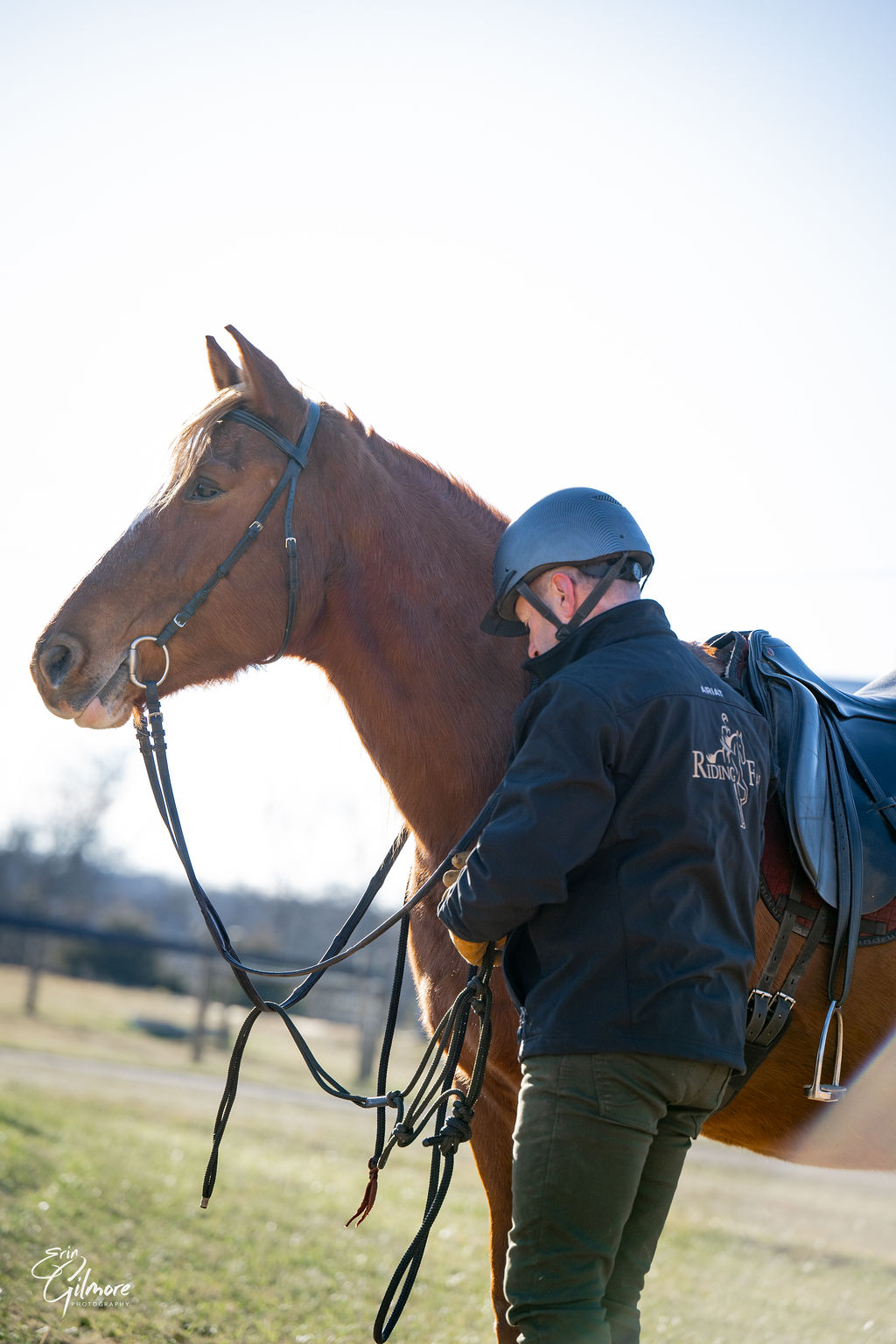
October 11, 2025
I have no idea where the old saying “When the going gets tough, the tough get going” originated. But I do know it reflects the rugged individualism and fierce self-reliance that seem to be woven into the American ethic. In the horse world, that attitude often shows up as “don’t be a wimp” or “cowboy up.” Unfortunately, it doesn’t stop there. It also influences how we treat our horses, and sometimes, how we treat the people around us.
Over my 25 years of working with riders and more than 38 years as a psychotherapist, I have seen the damage that mindset can cause when taken too far. I have also had the privilege of accompanying many people on their journey back from it. Together, we have walked the path of healing, courage, and rediscovery, finding strength not in toughness alone, but in connection, compassion, and care.
I am all for resilience. I believe in grit, in sustained effort, and in the commitment it takes to do something truly great. Growth often asks for discomfort, and sometimes even sacrifice. But what I have never understood is our contempt for vulnerability, our tendency to look down on fear, or to see tears as weakness. Those feelings are not signs of failure. They are the raw materials of courage.
More than ever, I believe in the power of connection. Every day, I see proof that amazing things happen when people and horses join together. I celebrate the growing movement toward relational horsemanship. I celebrate our increasing understanding that our strength as human beings is grounded in our relationships with others.
So now, when I hear the old saying, “When the going gets tough…” I find myself finishing it differently.
How would you finish it? ~ Paul
#PsychSaturday #WhenTheGoingGetsTough #CourageAndConnection #HealingThroughConnection #VulnerabilityIsStrength #RelationalHorsemanship #MindfulHorsemanship #HorseAndHumanConnection #ResilienceOverRigidity #AuthenticStrength #SelfCompassion #ThePowerOfTogether #MindfulLiving #HeartCenteredLife #GentleStrength #WisdomInTheArena #RidingThroughLife
Read More

My horse Revel is the gift that keeps on giving. Last week, I wrote about belief — belief in ourselves, in our horses, and in what’s possible. This week, during my first ride after the Pippa clinic, we had the most beautiful, light, and soft transition from walk to canter. It was just one transition, and we’re really only at the beginning. But I’ll treasure that moment and keep working to let Rev know how good he is at things.
One of our biggest challenges together is undoing what I’ve taught him up to this point. From my work with people, I know that some changes come easily. Sometimes we’re ripe for transformation. We shift one small thing in our balance or our aids and, voilà, the doors fly open. As long as we can reproduce that new balance or way of asking, the new attitudes and behaviors are right there. It’s as if we’d been blocking the good stuff all along and just needed to get out of our own way.
But there’s another kind of change. There are moments when we get things just right and realize that we’ve taught our horses an unhelpful response to the proper aids. After my accident with Revel in 2013, I was terrified he might run off with me again, so I taught him to stop. Apparently, I did this very well. Any time my energy drops or my body softens, he halts, dead still, and still does to this day.
During the clinic, I was working on descente des aides, the silencing or release of the aids. Each time Revel responded and I quieted my aids, he stopped. At first, I was frustrated with myself and then with him. What was I doing wrong? Then it hit me: what if I wasn’t doing anything wrong at all? What if I was actually getting it just right, but in all our years together I had taught him that this moment of quiet meant something else?
It reminded me of my work with children and families. So often, I can see both what’s wrong and how easily it could be fixed if the behavioral contingencies could change. I also know that it would have been easier if the desired dynamics had been established at the start. But now, the river is flowing strong, and we have to make changes mid-stream. This is a task that is possible but that takes thoughtful effort and steady persistence under the guidance of a patient, watchful mentor.
It makes me wonder how many times I’ve felt lost in my riding, not because I was doing something wrong, but because my horses had learned that it meant something else. How many times have I gone chasing different solutions when what I really needed was clarity, help in refining my communication, and patience in helping my horse understand that what I once taught was unhelpful, and that now I want to change the flow of the river?
Man, it’s hard to change things mid-stream. ~ Paul
#PsychSaturday #DressageJourney #MindfulRiding #EquestrianLife #LightnessInRiding #DescenteDesAides #Horsemanship #RiderMindset #EmotionalHorsemanship #HarmonyInMotion #ChangeTheFlow #LessonsFromTheSaddle #RidingFar
October 4, 2025
Read more
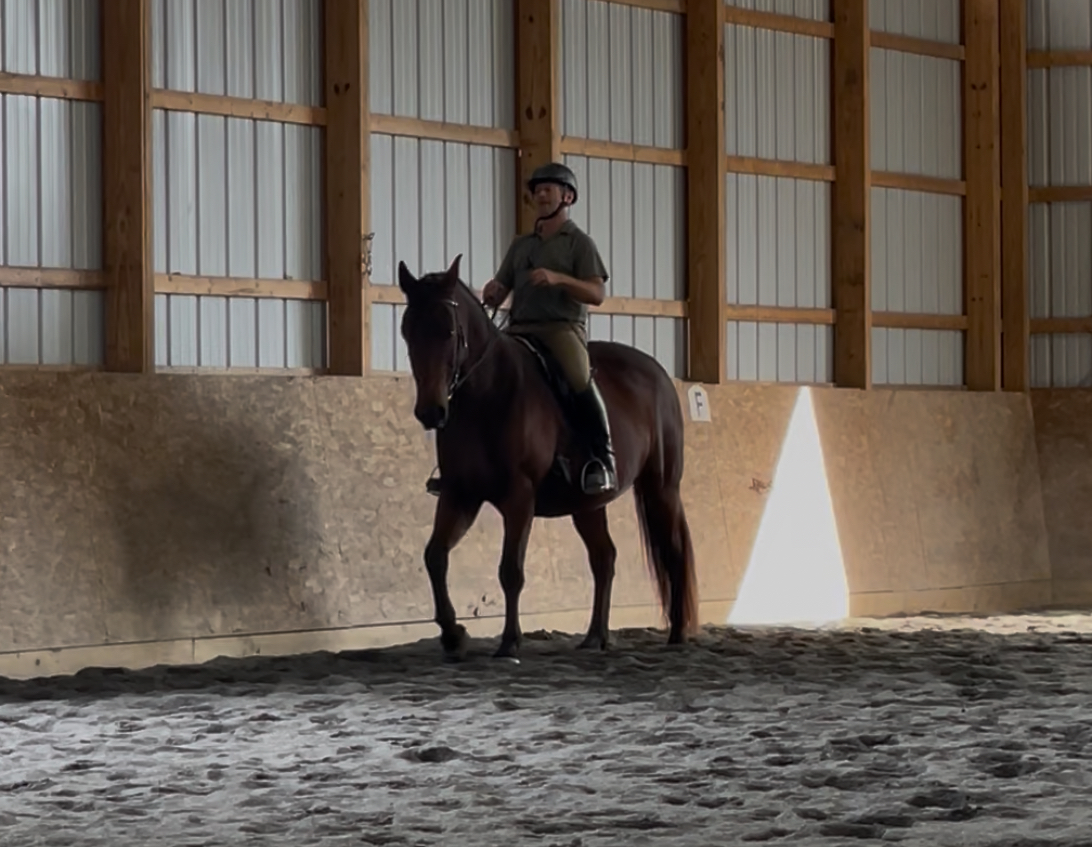
September 27, 2025
Some of my favorite times to write are right in the middle of a learning experience. These days, many of my most treasured learning experiences are with Pippa Callanan. This weekend, I pulled my old buddy Revel out of the field and asked him to join me for a session. As we worked on finding balance and exploring the postural and engagement benefits of rein-back to forward, Pippa gave me a simple request: Believe in him.
We got a lot of try, and even managed a rein-back to canter depart, but I left the session feeling a little frustrated that we hadn’t accomplished more. Something was holding us back.Then it hit me. Something so obvious, yet so powerful, that I know will shape all of my riding going forward. Believing in him wasn’t just a thought or idea. It had to live in my body, in the way I offered my aids, in my whole being.
I think this is what’s meant when we’re asked to ride as if our horses were already trained to the highest levels. I’m beyond excited to ride today. I’ll be working with my mare, Nubble, and my young horse, Lil’ Joe. I can’t wait to feel what it’s like to truly believe in them, the way I know they already believe in me. ~ Paul Haefner
#PsychSaturday #BelieveInHim #HorseWisdom #EquestrianLife #LearningWithHorses #MindfulRiding #TrustYourHorse #EquestrianJourney #HorseTraining #RiderMindset #HorsemanshipGoals #HorseLove #HorseInspiration #EquestrianCommunity #RideWithHeart #HorseConnection #LifeLessonsFromHorses #EquestrianMotivation #BalanceAndHarmony #HorseRiderBond
Read More
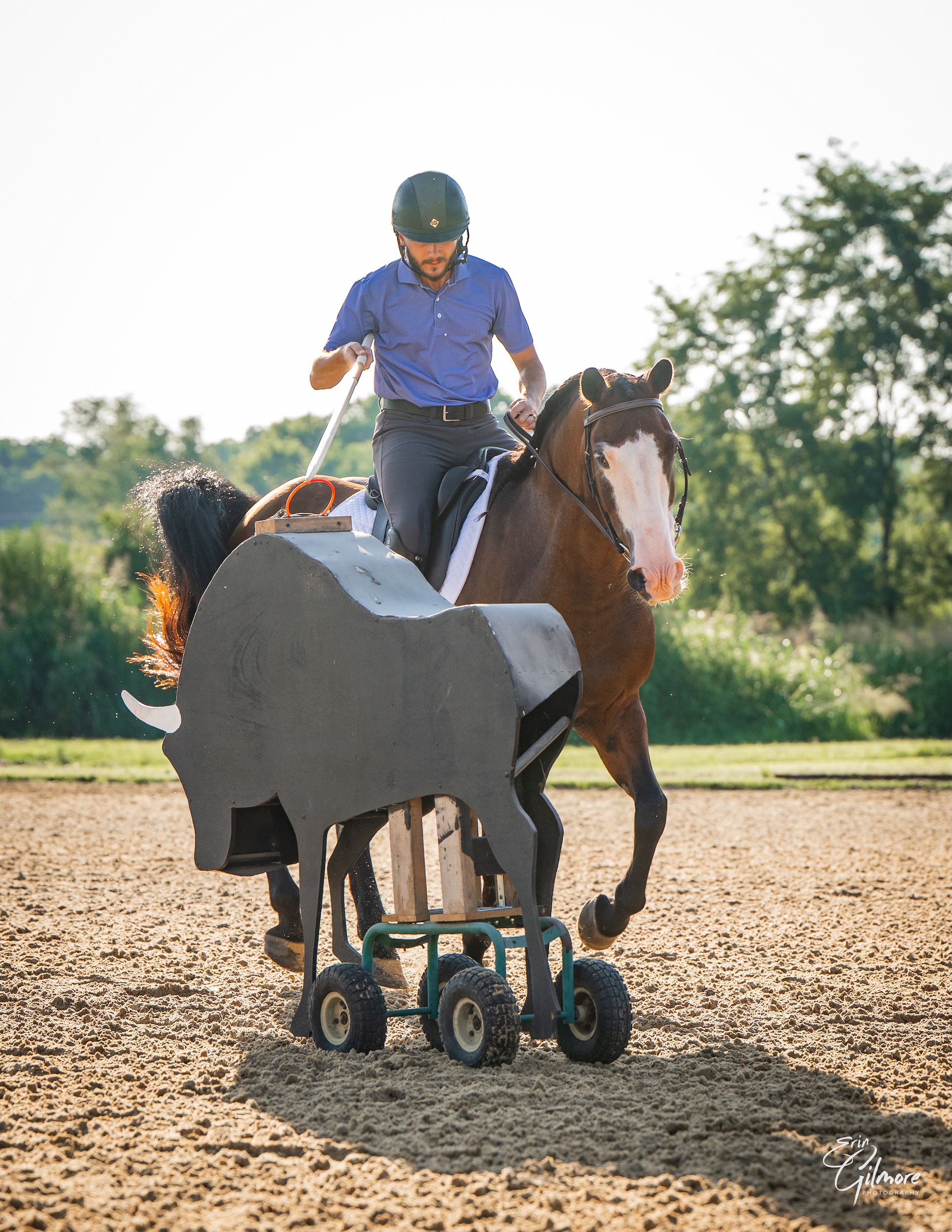
Psych Saturday: Show Prep
When we talk about show prep, most people picture a checklist. Pack the tack trunk, polish the boots, braid the mane, review the test. Maybe we also think about our pre-ride routine, how we like to warm up or the way we visualize the course. Those things matter, but they only scratch the surface of what true preparation really means.
Equestrian sport is unique in that we don’t just bring ourselves to the show ring—we bring our horses, their needs, their emotions, their readiness. And we also bring our lives. Every late night, every work stressor, every family responsibility rides along with us. The state of our nervous system can shape the show experience far more than whether we remembered to pack an extra pair of gloves.
This weekend, Justin and his horse, Kola, are heading into a licensed Working Equitation show. The goal: earn the qualifying score they need for the USA Working Equitation Regional Championships. The stakes feel high, and Justin has done all the obvious prep—tack cleaned, entries sent, Kola fit and ready. But the real preparation is happening on a deeper level.
When we step into competition, our nervous systems don’t function in isolation. They carry the imprint of the week, or even the month, leading up to the show. Maybe Justin had a long week at work. Maybe family pressures or unexpected stressors cropped up.
When our nervous systems are revved up our perception changes. We often filter the world through a negative lens. For Justin, walking into the arena isn’t just about his aids or the shape of Kola’s circles. It’s about whether he can notice the good moments, the quiet tries, and the rhythm they share, or whether his nervous system keeps scanning for what might go wrong.
So what does real preparation look like? Of course, it includes the list, the clean tack, the packed snacks, the warm-up plan. But it also includes caring for the yourself. For Justin, that might mean five minutes of grounding before tacking up, or reframing the stakes: yes, the qualifying score matters, but what matters more is riding in a way that Kola can trust.
Preparation also means compassion. If the week was hectic, Justin can acknowledge that reality instead of fighting it. He can notice that his nervous system is more sensitive, and plan accordingly, simplifying his warm-up, focusing on connection rather than perfection. That kind of awareness is preparation in its own right.
As Justin and Kola step into the arena this weekend, their partnership will reflect not only hours of practice, but the totality of their shared life context. If Justin carries stress but softens his edges, Kola will feel it. If he braces against imagined mistakes, Kola will feel that too.
The truth is, show prep doesn’t start the night before. It starts weeks, even months, in advance. Every time we choose how to meet life’s stressors, care for ourselves, and honor the partnership we’re prepping. The bigger picture always comes with us, and learning to integrate that truth is part of the art of being an equestrian.
This weekend, Justin is riding for a qualifying score. But in another sense, he’s riding for something bigger: the ability to show up fully present with Kola, even in the midst of pressure, nerves, and life’s inevitable chaos. That’s a form of preparation that no checklist can capture, but it’s the kind that matters most. ~ Paul
#PsychSaturday #EquestrianLife #ShowPrep #MindfulRiding #WorkingEquitation #HorseShowReady #EquestrianMindset #RideWithPresence #HorseAndRider #PerformanceUnderPressure #HorseShowSeason #EquestrianJourney #MindBodyHorse #EquestrianWellness #RideConnected #HorseShowMindset
September 20, 2025